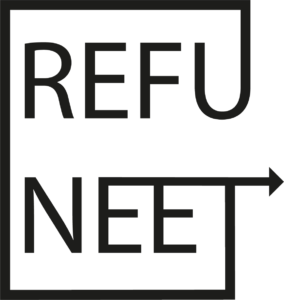
Career guidance for young refugees – escaping NEET status with training and employment
Erasmus+Youth KA2 Strategic Partnership (2016-2018) NO, AT, BG, DE, FR, TR, UK
Oslo and Akershus University College: 2016-2-NO02-KA205-000780
Background
By end of February 2016, Europe has experienced over 1.1 million refugees, displaced persons and other migrants escaping from serious threats in their country or in search of better lives. At the same time, there is a historical high level of NEETs in Europe; youth aged 15-29 and Not in Employment, Education or Training. Many migrants are young men competing for jobs in line with the already existing NEETs. Studies indicate a huge recruitment potential for violent radicalisation and extremism from groups of NEETs. The project is targeting early competence assessments combined with effective guidance, counselling and coaching of young refugees to avoid a NEET status and to become attractive future workers.
Objectives
The main objectives of the project are (1) to develop structures and methods to prevent young refugees not being NEETs. (2) Early mapping of young refugees skills and competences. (3) Experiment with new ways of e-guidance and chat services for young people. (4) Activate individuals through employment, education and training. (5) Develop easy-to-use forms, certificates or portfolios to document acquired skills and competences. (6) Develop professional education and training pathways for personnel involved in refugee and multicultural migrant counselling, guidance and coaching.
Number and profile of participants.
The partnership consists of twelve organisations from seven countries, representing higher education and research institutions providing professional career guidance and counselling education, assessment and training providers, youth organisations assisting young refugees, public authorities in countries with high refugee numbers, system developers and technical providers along with providers of tools like Skillsbank and Skillstube. In addition, the project will be organized with national support and reference consortia.
Description of activities;
Mainly, there will be five different activities in the project: (1) Collecting information on NEETs and the refugee situation along with examples of best practices for assessing and documenting young refugees skills and competences. (2) Develop methods and procedures to identify young migrants skills and competences (RPL) and to provide appropriate guidance and counselling. (3) System specification to optimise the use of Skillsbank for guidance and coaching of young refugees. (4) System development and implementation of Skillsbank with interface modifications and adaptations to secure input, process, storage and output with the main objectives of RefuNEET. (5) Develop formal education and training programmes targeting personnel involved in refugee and multicultural migrant counselling along with experimental implementation of ECTS recognition of informal and non-formal learning.
Methodology
A variety of methods will be used to accomplish the project; desktop research, qualitative surveys, data collection from national statistics and Eurostat, phone interviews with representatives from identified best practices, qualitative and comparative analysis, system development, experimentation and partner consultation, curriculum and assessment development, documentation and reporting.
Description of the results and impact envisaged
Because of RefuNEET, we foresee a bi- or multilingual implementation of an ECVET-based RefuPass drawing on Youthpass and Europass experiences. A œRefuPass œmaking competences from a diversity of life experiences and training visible for further career guidance and coaching based on the Skillsbank system. Furthermore, cultures and educational systems different from EU requirements and recommendations require permeability, i.e. flexible openings for education and training and for alternative career pathways. Number of persons into employment or number of persons into training based on RefuNEET documentation may count results. A professional education and training programme for personnel involved in refugee and multicultural migrant counselling will be one of the milestones, allowing recognition of ECTS based on RPL.
Potential longer term benefits.
Long-term results could be wide spread use of a RefuPass documenting refugees skills and competences, and open up for entering either educational systems or employment in most European countries. The higher education programme for refugee and multicultural migrant counselling could be implemented in general education for career guidance and in (vocational) teacher education.

This project has been funded with support from the European Commission. This publication reflects the views only of the author, and the Commission cannot be held responsible for any use which may be made of the information contained therein. |


